Happy Ageing!
Happy ageing! Advice for the over-50s Recent reports in the media suggest that life gets better after the age of fifty. Happy ageing! This article provides some advice for the over 50s with respect to…
20 Jul 21 · 9 mins read
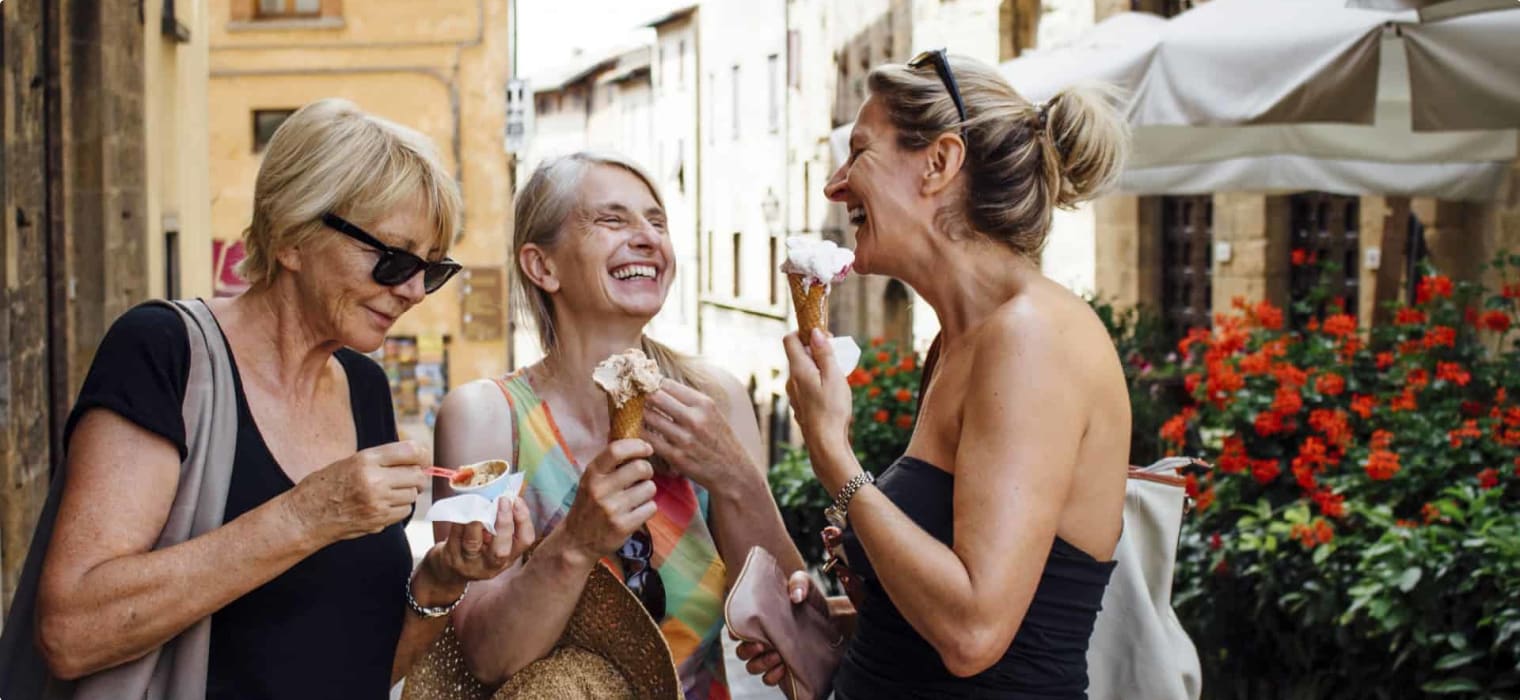
Happy ageing! Advice for the over-50s
Recent reports in the media suggest that life gets better after the age of fifty. Happy ageing! This article provides some advice for the over 50s with respect to life, exercise & travel. Recognition of life improving after 50 years of age comes as no surprise to us here at Odyssey Traveller. With over thirty-five years’ experience in senior travel, we understand mature travellers to be open, inquisitive and adventurous. Mature & senior travellers have a thirst for knowledge and new experiences and seek out ways to connect with the world. And now, research supports this fact.
Happiness on a U-curve
Economists argue that happiness falls along a U-curve. It begins to decline during the 20s and 30s, reaching a trough in the 40s. Interestingly, this is especially pronounced for people with steady lives and jobs, who – for all intents and purposes – have achieved everything they had hoped for. But priorities begin to change, and as we move past the forties, we begin to let go of the stresses of career goals and social status, and realise life is about spending time doing what we love. As Jonathan Rauch observes in his book, The Happiness Curve, people over 50 often have a profound sense of gratitude and a desire to live in the now. As he writes, approaching 60, “it’s worth the wait”.

Embracing life after 50
Of course, this study glosses over other factors contributing to happiness. Health, finances and relationship status impact our state of mind, and no study can account for our personal experiences. But knowing that people aged 50 and over are filled with potential for great happiness is truly exciting, and there are so many ways this can be embraced and encouraged. Read on for tips on how to make the most of the 50s and beyond.
What does happiness mean?
This is a complex question, and experts aren’t able to provide definitive answers. Drawing from a large pool of survey responses, psychologist Martin Seligman determined that happiness requires a combination of frequent positive emotions, with a deeper feeling of purpose or meaning. He differentiates three separate orientations: to engagement, to pleasure and to meaning. He notes, however, that the three are not incompatible – they can in fact be practiced at the same time.
People who seek out and appreciate pleasures, who engage with activities in which they briefly ‘lose themselves’ in focus, and who identify their own gifts and talents and share them with the world tend to have a happier world view. This data also suggests that happiness is more pronounced among older people, who often have greater opportunities for engagement and meaning-making activities. Retirement may mean more time to pursue your interests. And by 50, you may have a stronger understanding of who you are. And as Seligman writes, “Perhaps increased pleasure can occur as a happy by-product of such interventions”. Putting yourself out there is win-win.
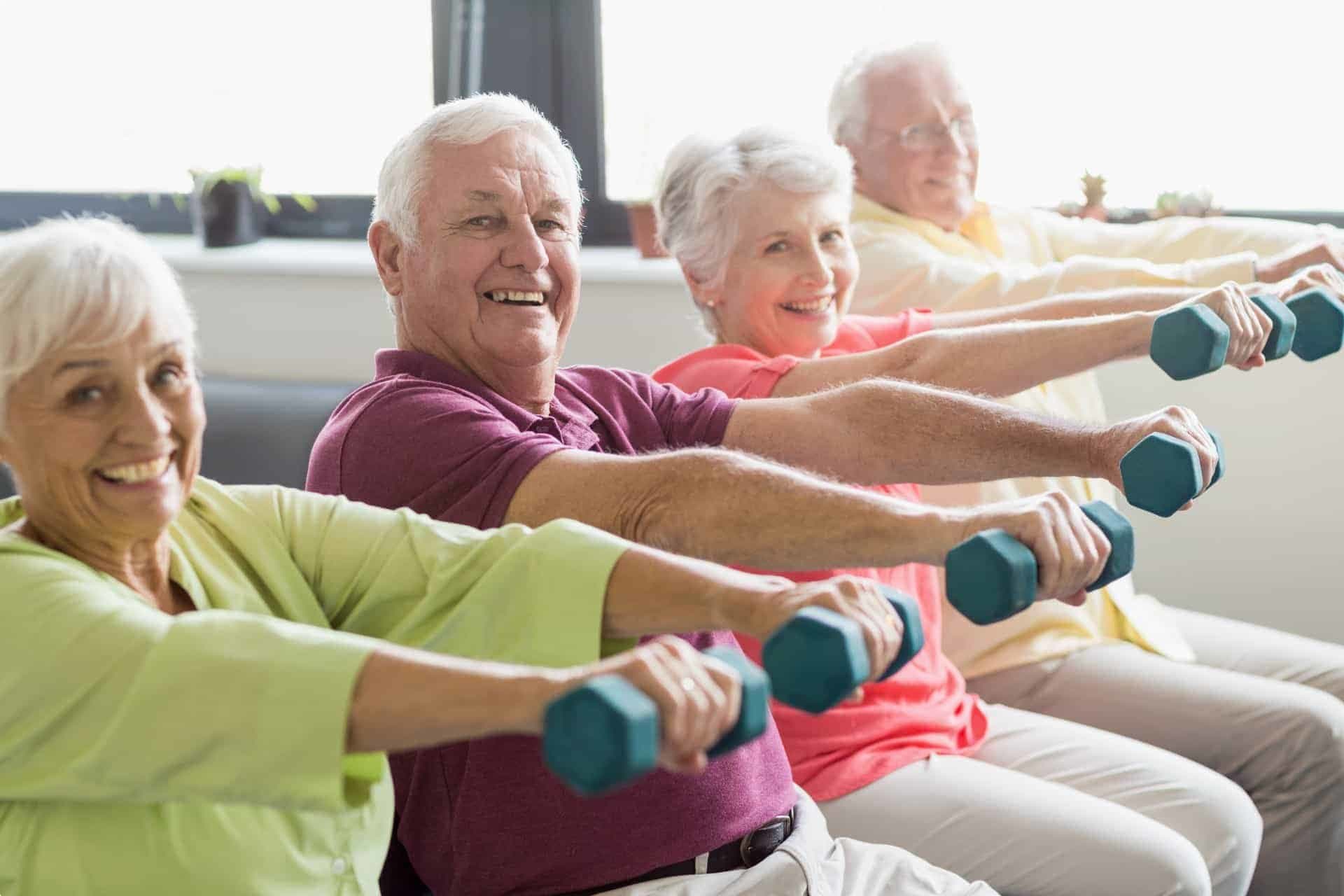
Taking care of yourself: health and lifestyle
Health has a significant bearing on ageing and happiness. Researchers at Harvard University recently determined the five major factors that make an impact on health and lifespan. Studies have shown over and over again that poor diet and harmful habits contribute to poor health. You can take steps to make you feel better and live longer. And it is never too late to start.
1. Enjoy a healthy diet
A healthy diet should include a variety of fresh ingredients including plenty of vegetables and fruit. Ask your medical practitioner for advice on the right diet for you, or even seek out the services of a nutritionist. There are opportunities to make these changes fun. Why not, for example, enrol in a cooking school? And learn a different country’s cuisine? The Mediterranean diet comes highly recommended for some! Read cookbooks, and view this as a chance to learn new skills. An interest in a particular cuisine might lead to a desire to learn its’ language and customs. Cooking can be a great way to engage with the wider world. Even more so when you invite friends or family to dine with you!
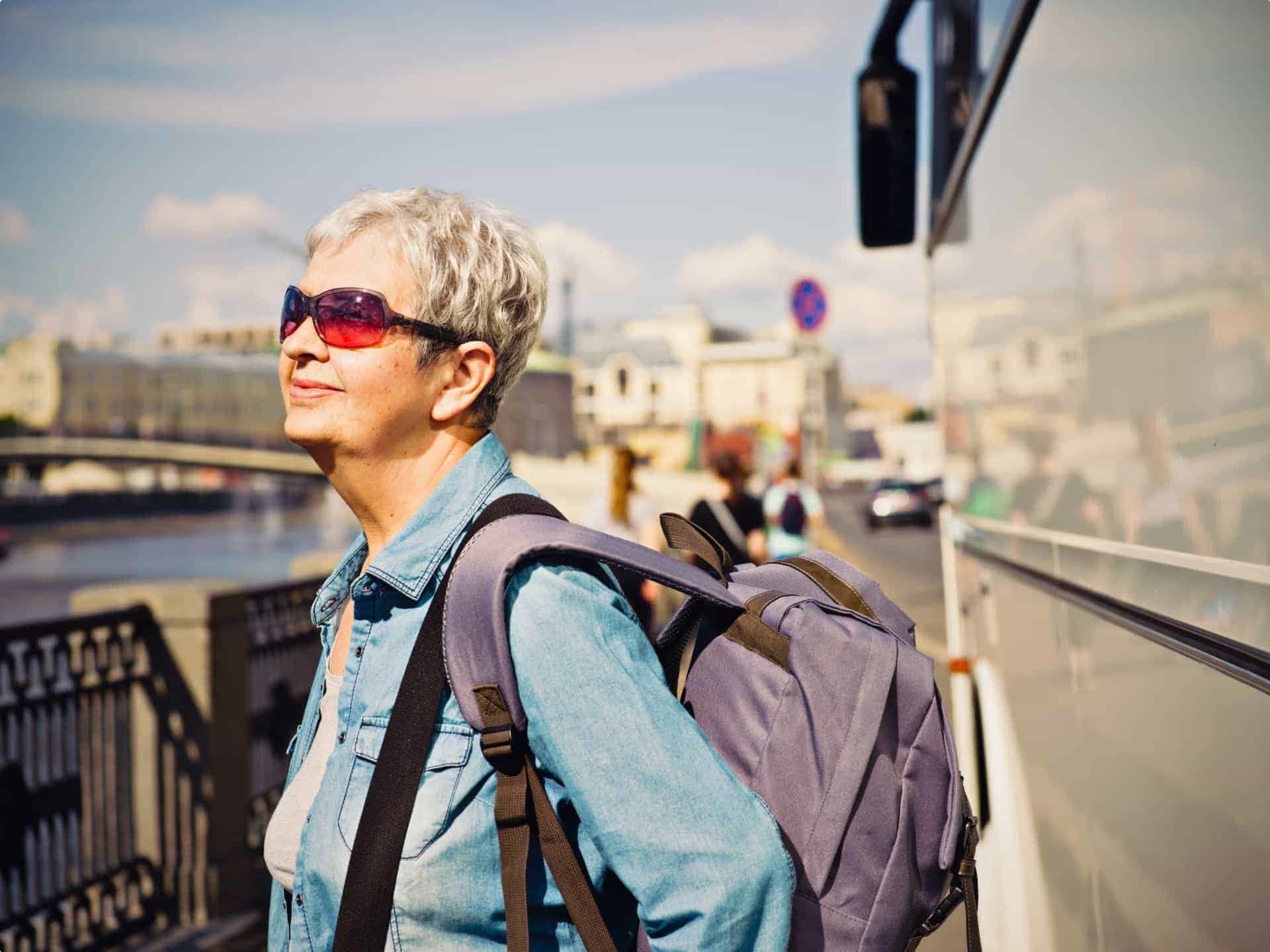
2. Manage your weight
This is a fairly obvious one, and is linked with points 1 and 3. But we recommend approaching this from a position not of what you lose, but what you stand to gain by increased mobility and fitness. Rather than set a goal weight, set a goal for which you would like to feel better and fitter. A holiday can be a great goal, or perhaps it is a grandchild’s graduation, or a birthday.
3. Engage in physical exercise
As our population ages, we are inventing new ways to keep ourselves active. Walking football clubs have been emerging in the UK over the past few years and the phenomenon has recently arrived in Australia. Players must walk – not run – around the court, meaning the sport is won by skill and finesse rather than speed. The over 75s are permitted a “shuffle” here and there, but the emphasis is on fairness and safety. And as the coach of an Australian team explained to this reporter, the game is as much about physical fitness as it is an excuse to socialise afterwards. Post-game celebrations can also bring together partners of players, and establish great traditions and camaraderie.
The ways in which seniors exercise are changing. Across Europe and Australia, “exercise parks” are being built. Looking more like children’s playgrounds, these fun inventions allow senior fitness to be integrated into the fabric of everyday life. They encourage fitness in an open, social environment that doesn’t exclude on the basis of cost or access.
A recent study conducted among the Danes show that social sport, such as tennis, may in fact add years to your life. The study went so far to say that adults who participated in team sports lived longer than people who were sedentary, but also lived longer than people who did healthy–but solitary–activities, such as jogging or swimming.
As the world begins to embrace our senior population as part of the broader community, more and more opportunities are becoming available. Sure, aqua aerobics is fun, but don’t stop there! Think dance classes, archery, even boxing – each of which brings a unique set of benefits, physical, mental and social.
A series of studies have shown that exercising early in life and continued frequent exercise (four times a week) provides lifelong heart health. Don’t fret–the same studies show that your heart can still stay young as long as you start exercising now and often. So get going!
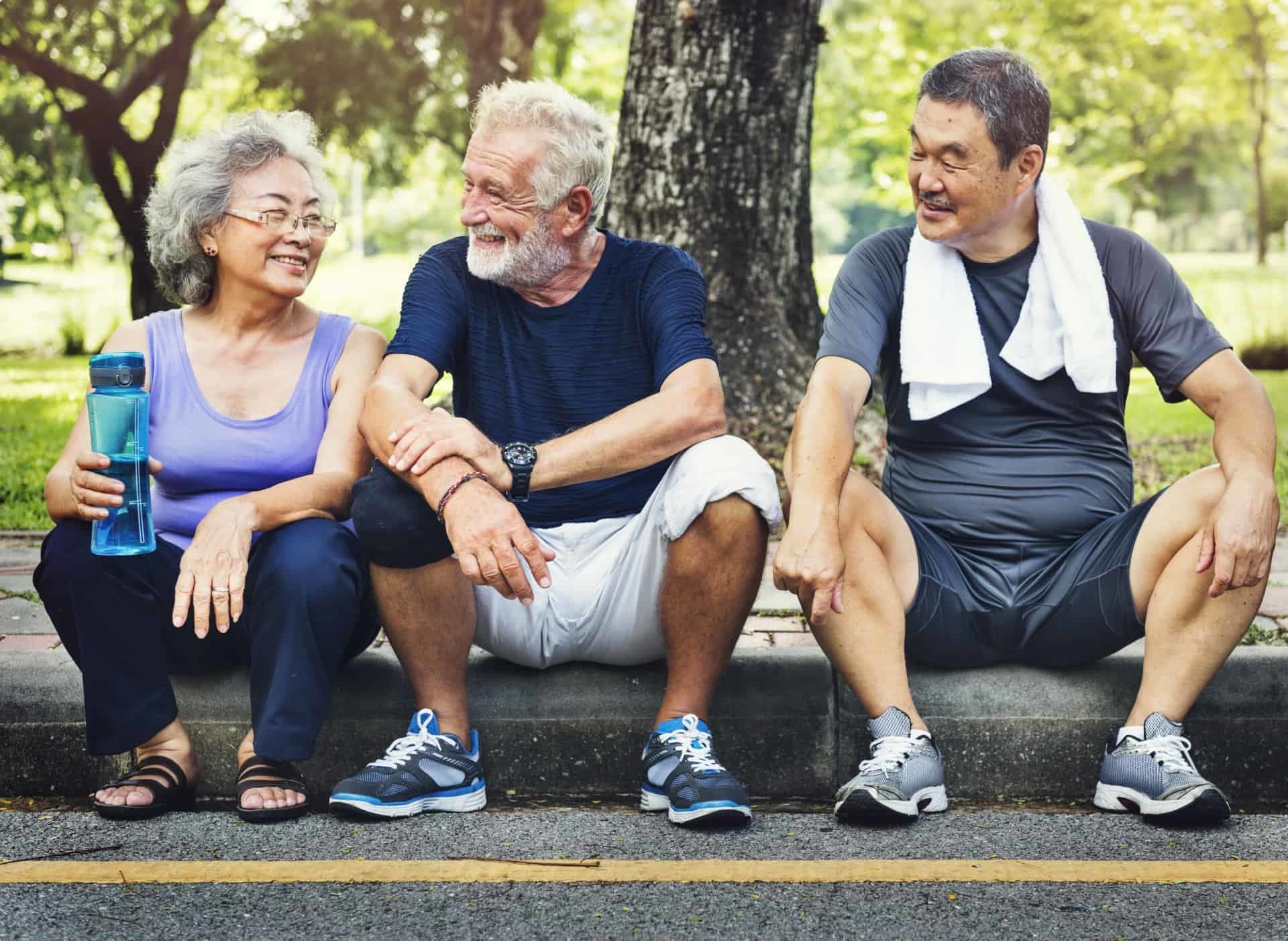
Physical exercise also plays a vital role in maintaining optimal brain health for those over the age 50. A recent study by Dr. Agnieszka Burzynska from the Colorado State University indicates that it can freshen and renovate the white matter in our brains, potentially improving our ability to think and remember as we age.
White matter is essentially the brain’s wiring – the tissue that connects neurons via nerve fibers – and is essential for brain health. It can be fragile though, thinning and developing small lesions as we age. These dilapidations in turn can be the precursors of cognitive decline.
According to Burzynska’s study, however, white matter can refashion itself late in adulthood, especially if people begin to move. Both improvements in memory skills and renewed white matter were shown amongst a group of regular walkers over six months. In contrast, members of the control group, who had not exercised aerobically, showed declining white matter health after the six months. The findings tell us that a few brisk walks per week is all it takes to keep your white matter healthy and your memory sharp.
4. Drink in moderation
Experts advise alcohol consumption is limited to one drink per day for women, and two for men. Given that, why not really savour it? Have a chat with your local bottle shop assistant for recommendations. Get adventurous with your purchases, and start taking note of nice wines you try in restaurants. Better yet, get involved in a wine tasting class! Make a day of visiting vineyards and cellar doors. Some bars now offer whiskey or gin tastings. You may even want to get amongst the youth and try a craft beer at your local pub!
5. Quit smoking
There is no doubt that quitting smoking dramatically improves health and lifespan. Seek out support from medical professionals and look to a future in which you can feel better. Read more about all five factors here.
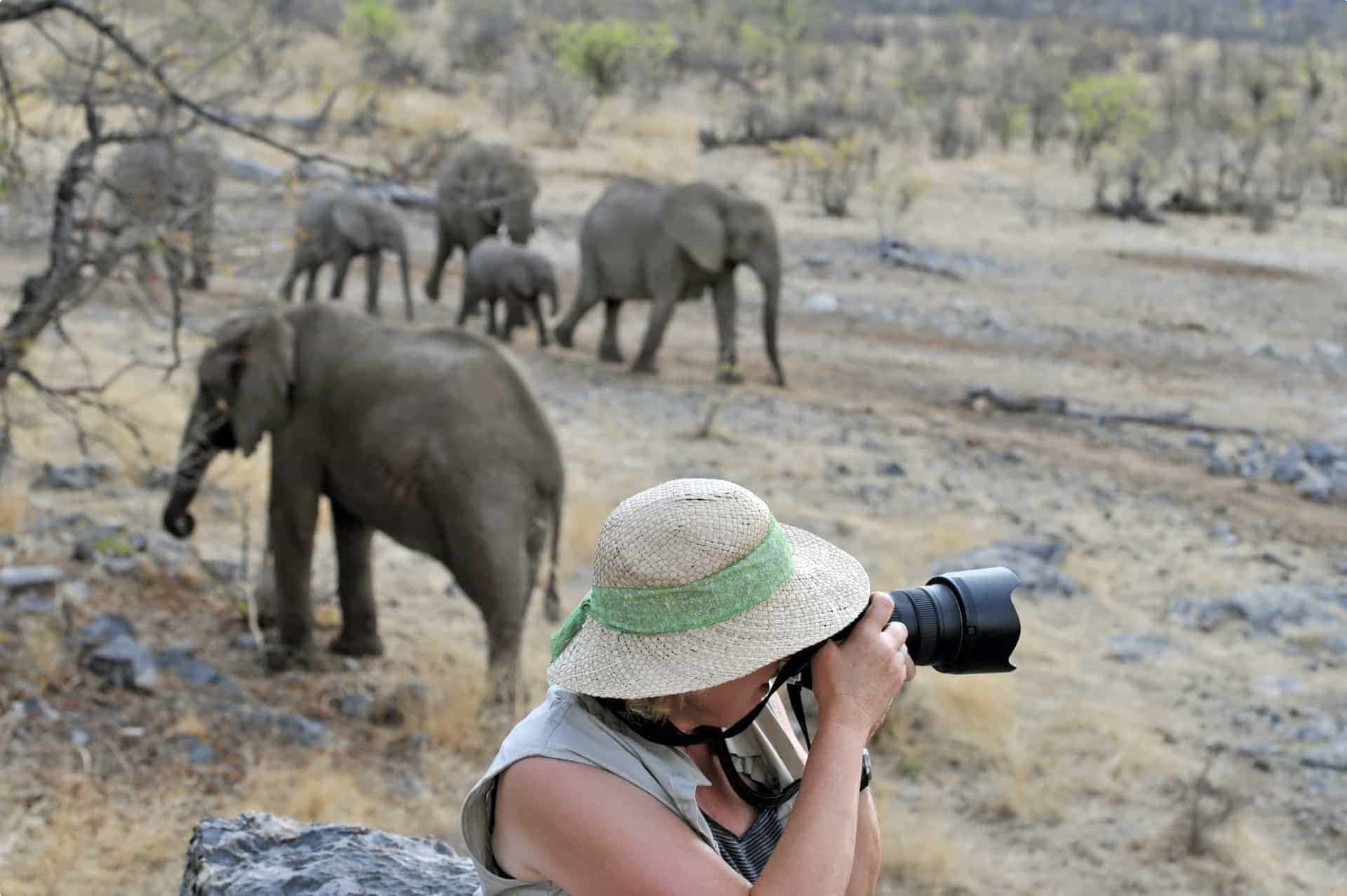
Friendships and loneliness
Of course, though studies suggest that happiness can increase with age, we can’t ignore the statistic that many people experience loneliness. As Amy Sedghi observes, it is not so much linked with age, but that adulthood presents a series of obstacles to sustaining relationships. When we are younger, we have more time and more opportunity to spend with friends, and greater access to a wide range of people. As we age, our lifestyle changes. We take on demanding jobs, have families, and move around. Friendships become harder to sustain due to physical distance or lack of time. Also, we change, and might look for different qualities in a friend as life takes us in new directions.
Some research suggests we may only have 2-3 very close friends in our lifetime. But there is nothing to say we shouldn’t seek out friendships throughout our lives. Besides, sometimes the fleeting or unexpected friendships can have the greatest impact.
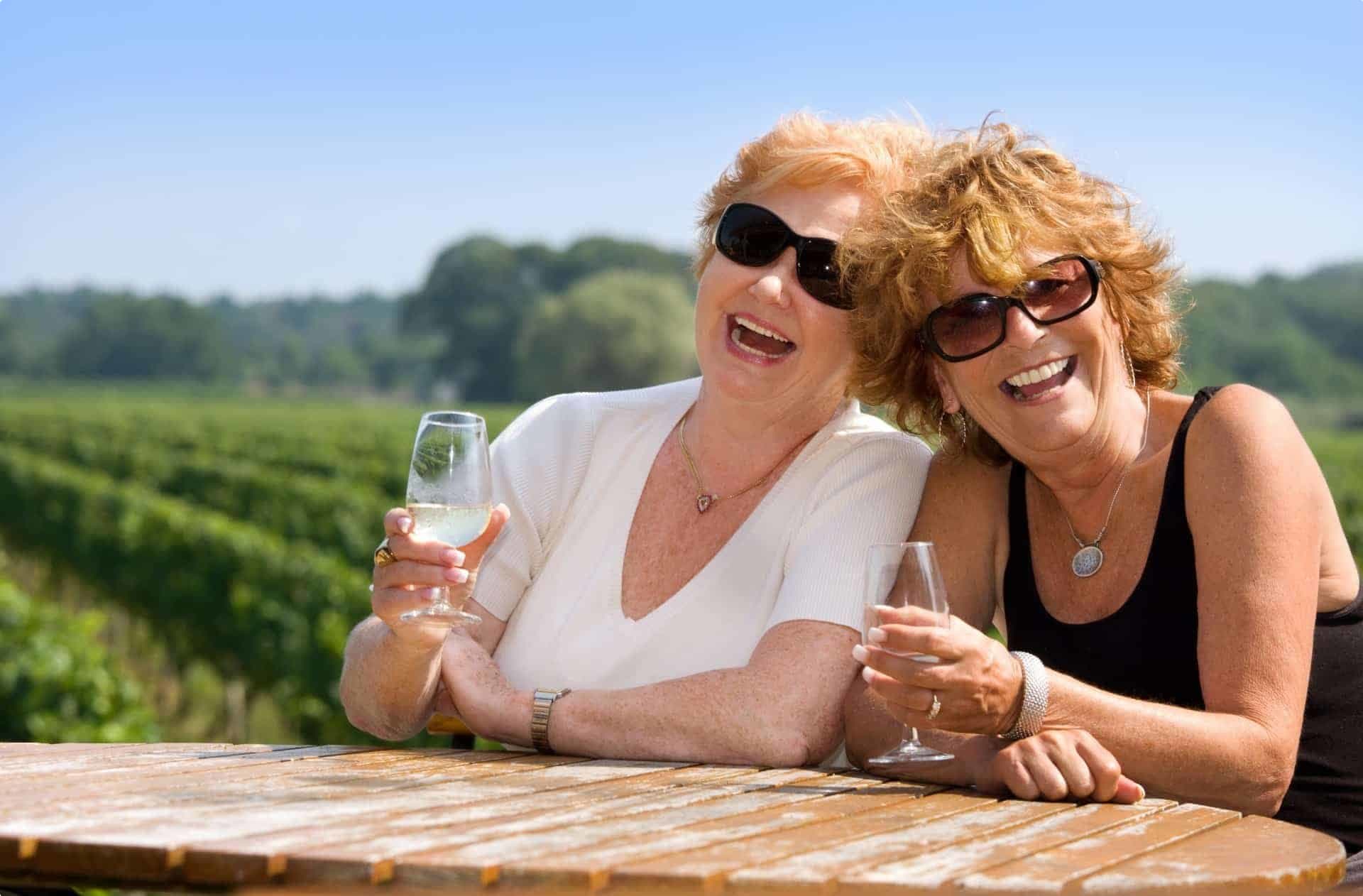
How to make friends and get out there
In this article, psychologist Linda Blair lists some tips to forming new friendships as an adult. Among them are building your own self-confidence, which can be done by being kind to yourself, and letting yourself spend time doing the things you love. Incidentally, joining a community group or language class will not only build confidence and take you out of your comfort zone, but will also expose you to like-minded people. Shared interests are a great foundation for a friendship, and having a regular time and place to meet will help relationships grow. A recent study by the University of Kansas suggests that it takes 90 hours spent with someone to develop a friendship – 200 plus hours for a close one!
Another of Blair’s tips is to ask plenty of questions and really listen to the answers. The simple practice of listening is becoming quite rare nowadays, and really helps to make a person feel heard and valued. This is a great basis for mutual respect. But Blair also warns not to approach new friendships with too many expectations. Don’t go looking for the best friend with whom you share everything in common – go with an open mind and heart, and you may meet people who are just perfect for the here and now.
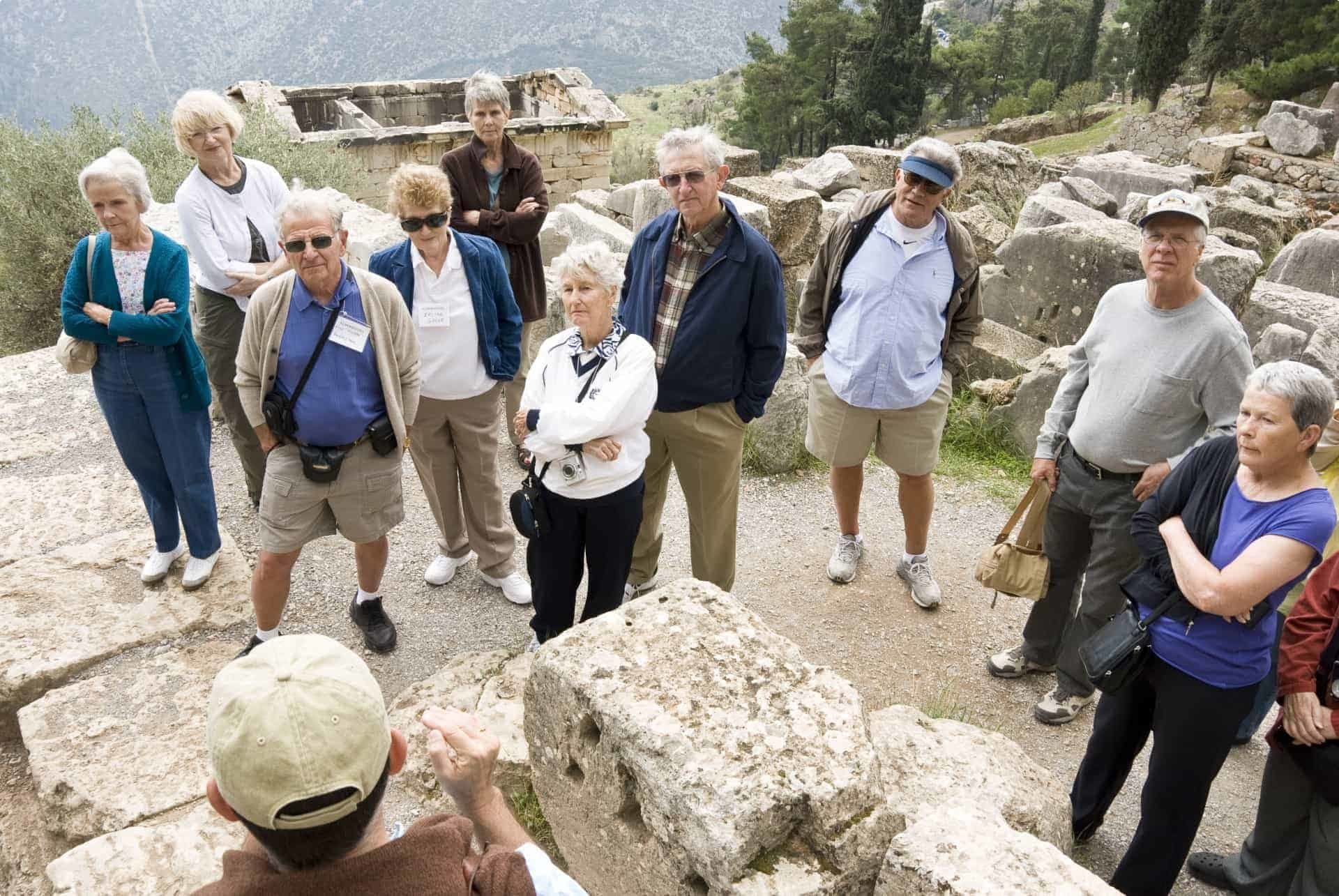
Senior travel experiences
Travel keeps you youthful, opens your mind, provides the greatest and most immersive education and connects you with people around the world. It provides new opportunities for pleasure, for learning about your passions, and it helps to give life meaning. Small group tours are especially suited to travel in your 50s and over. Reasons to travel in small groups include:
- you will meet like minded people who are open and interested in the world around them. This is the foundation for great friendships
- you will spend time getting to know one another over shared experiences
- an organised tour saves you from planning, meaning you have more time for the fun parts
- you can rely on local expertise to provide authentic insights
- Odyssey tours have an educational angle, and give you an opportunity to learn in an immersive environment
- a tour gives you a goal to work towards for your health and fitness goals
- this preparation can itself lead to new friendships
- travel can provide opportunities to give back by supporting small communities or local businesses around the world
- Odyssey Traveller is a not for profit company, and your experiences help us fund equity and merit scholarships for university students
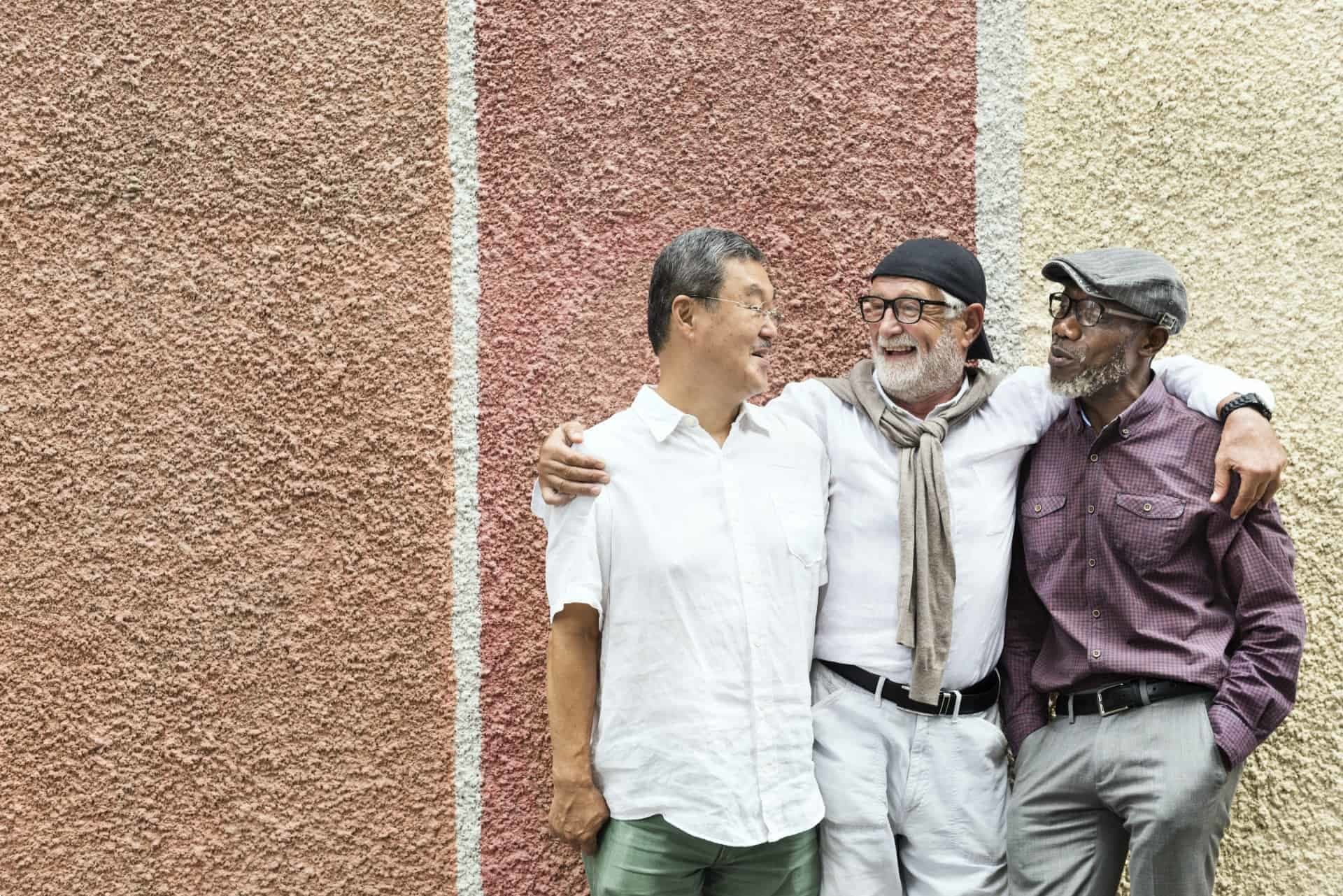
We’d love to hear your thoughts and advice on travel aged 50 and over. Does it increase your happiness? Has it led to friendships and new experiences?
Odyssey Traveller tours for seniors
Odyssey Traveller is famous for our small groups, and we average eight participants per tour. Our maximum group size is eighteen people, which ensures quality, flexibility and care that is tailored to our clients. We specialise in small group tours for the senior traveller who is seeking adventure or is curious about the world we live in. Typically, our clients begin travelling with us from their mid 50’s onward. But be prepared to meet fellow travellers in their 80s and beyond! Both couples and solo travellers are very welcome on our tours.
If you are passionate about learning while you travel, you will find a variety of opportunities with Odyssey Traveller. Perhaps you are a lover of art and literature? We offer a range of tours tailored to this subject with destinations including Paris, Scandinavia and England. If you have a keen interest in archaeology, Odyssey Traveller offers specialised tours that include hands on experiences in Argentina or China. We offer walking tours for active travellers, and even a Summer School series based in Hobart, Tasmania. As long as you remain inquisitive, we continue to design programs to challenge and excite.
About Odyssey Traveller
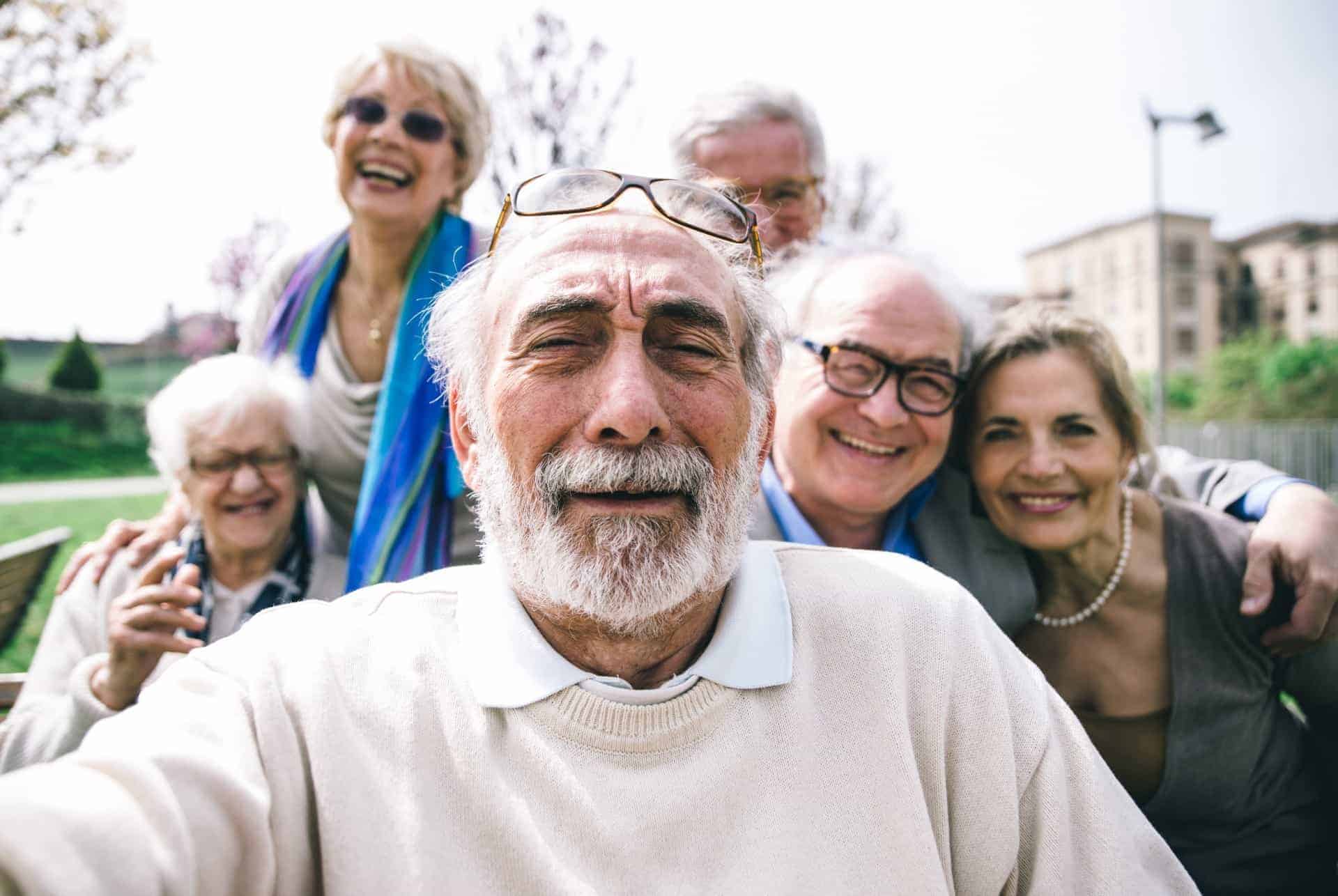
Odyssey Traveller is committed to charitable activities that support the environment and cultural development of Australian and New Zealand communities. Accordingly, we are pleased to announce that since 2012, Odyssey has been awarding $10,000 Equity & Merit Cash Scholarships each year. We award scholarships on the basis of academic performance and demonstrated financial need. We award at least one scholarship per year. We’re supported through our educational travel programs, and your participation helps Odyssey achieve its goals.
For more information on Odyssey Traveller and our educational small group tours, visit our website. Alternatively, please call or send an email. We’d love to hear from you!
Originally published June 22, 2018.
Updated on July 20, 2021.
Related Tours

21 days
Apr, Sep, AugBarcelona Small Group Tour | The city explored in-depth
Visiting Spain
Small group journeys from one of the best small group tour companies Europe that delve into Barcelona's history, culture, and cuisine. Daily itineraries for couples and solo travellers with like minded people. An escorted tour of Barcelona based in an apartment with local guides sharing authentic experiences and knowledge.
From A$12,925 AUD
View Tour
19 days
Sep, Jun, AugSaint James Way Small Group Walking Tour (The Camino)- Spain
Visiting Portugal, Spain
Experience pleasant sections of the Way of Saint James, crossing some of Spain’s most beautiful landscapes. We follow the pilgrims on easy distances of The Way to the mythical destination, Santiago de Compostella. Not since the middle ages has this adventure for body and mind been more popular. We also get to discover the artistic highlights and rich history of Northern Spain and Portugal, as well as enjoying local wines and exquisite food.
From A$14,135 AUD
View Tour
20 days
May, OctCaravaggio’s Journey | Small Group Tour in Italy
Visiting Italy, Malta
On this small group tour of Italy and Malta for mature and senior couples and solo travellers we trace the life of Caravaggio, exploring the artistic works he left behind and the tumultuous life he led. We follow him from his birthplace in Milan to Rome, Malta, Sicily and Naples. In each place he lived Caravaggio left behind a rich legacy of art for us to admire.
From A$15,125 AUD
View Tour
